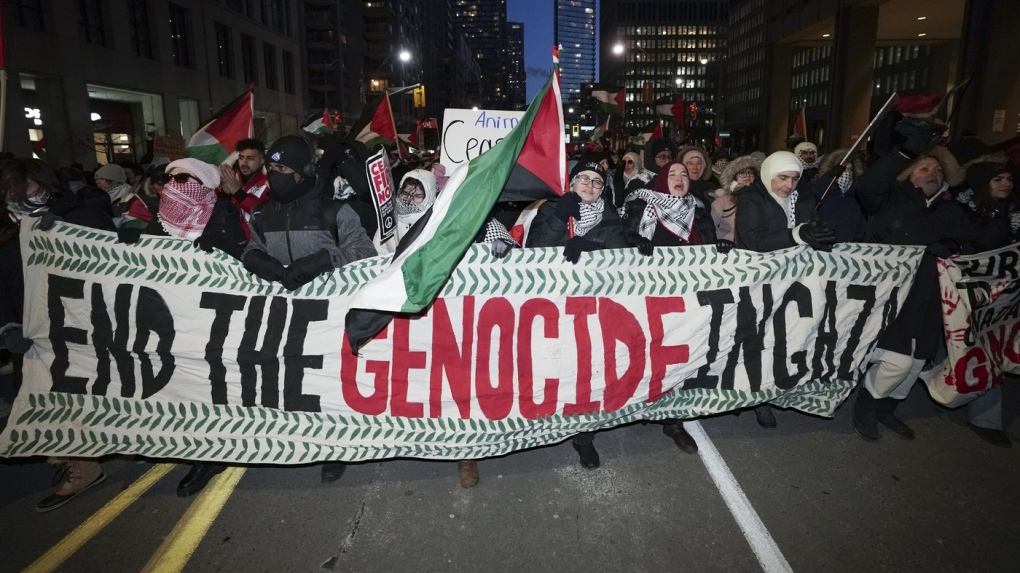A group organizing pro-Palestinian protests is alleging Toronto police “selectively” enforced a ban on demonstrations at a highway overpass over the weekend.
The group, Eglinton-Lawrence & Don Valley 4 Palestine, says the march on Saturday afternoon was “selectively obstructed” by Toronto police officers.
In a statement, the group alleges that people who presented as white and who were not wearing a keffiyeh — a traditional headdress worn in some parts of the Middle East — were allowed to move freely in the area, while others were arrested or “attacked.”
Toronto police did not immediately respond to a request for comment.
Police previously said three people were arrested Saturday for allegedly holding a protest on the overpass, in violation of a newly enacted ban imposed as a response to increasingly contentious demonstrations sparked by the Israel-Hamas war.
Police alleged those arrested — three men in their 20s and 30s — were given a chance to leave but refused. One has been charged with mischief and the other two with obstructing police.
Chief Myron Demkiw announced the ban on protests at the Avenue Road and Highway 401 overpass last Thursday, citing growing concerns for community safety.
He said many, particularly members of Toronto’s Jewish community, are feeling increasingly unsafe amid the ongoing protests and a spike in hate crimes targeting both Jews and Muslims. He also said the highway is a piece of critical infrastructure, and expressed concern for the safety of drivers below the overpass.
At the time, Demkiw said officers would increasingly be “applying a criminal lens” when policing protests in the city.
 Protesters attend a rally in support of Palestine in Toronto, on Sunday Jan. 14, 2024. THE CANADIAN PRESS/Arlyn McAdorey
Protesters attend a rally in support of Palestine in Toronto, on Sunday Jan. 14, 2024. THE CANADIAN PRESS/Arlyn McAdorey
Richard Moon, a law professor at the University of Windsor who specializes in free speech, said some of the concerns invoked by the chief in imposing the ban, such as the risk of distracted driving, could also apply to other locations and protests.
“If one wants to make the case that that’s distracting and protests in such locations shouldn’t occur, that has to be applied in a consistent way and not a selective way,” he said.
“So there are just different kinds of arguments that are thrown up, but they don’t seem to be applied consistently to other protests.”
When restrictions are applied inconsistently, it can “generate a certain cynicism about our commitment to protests and free speech,” he said.
It can appear that “if you’re saying the right things, you have the right to do it; if you’re … conveying messages that others or many people in the community disagree with, you don’t have the right to say it.”
Moon added that protests almost always involve some disruption, but in the absence of actual threats, the fact that some in the community may feel anxious or uncomfortable “is not an adequate basis for shutting down a protest.”
This report by The Canadian Press was first published Jan. 15, 2024.







